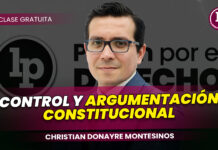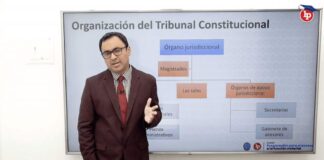Fundamentos jurídicos: 54. En el presente asunto, la denegación de la exención del servicio militar y del servicio civil sustitutorio se basó igualmente en que el demandante no era miembro de una sociedad religiosa en el sentido de la Ley de reconocimiento de 1874. Habida cuenta de sus constataciones antes mencionadas en el asunto Religionsgemeinschaft der Zeugen Jehovas y otros, el Tribunal considera que, en el presente caso, el mismo criterio -si una persona que solicita la exención del servicio militar es o no miembro de un grupo religioso constituido como sociedad religiosa- no puede entenderse de otro modo y su aplicación debe dar lugar inevitablemente a una discriminación prohibida por el Convenio.
55. En conclusión, el apartado 3 del artículo 24 de la Ley del servicio militar, que prevé exenciones de la obligación de cumplir el servicio militar exclusivamente en el caso de los miembros de una sociedad religiosa reconocida, es discriminatorio y el demandante ha sido discriminado por razón de su religión como consecuencia de la aplicación de esta disposición. Por lo tanto, se ha producido una violación del artículo 14 en relación con el artículo 9 del Convenio.
[Traducción de LP]
54. In the present case, the refusal of exemption from military and alternative civilian service was likewise based on the ground that the applicant was not a member of a religious society within the meaning of the 1874 Recognition Act. Given its above-mentioned findings in the case of Religionsgemeinschaft der Zeugen Jehovas and Others, the Court considers that in the present case the very same criterion – whether or not a person applying for exemption from military service is a member of a religious group which is constituted as a religious society – cannot be understood differently and its application must inevitably result in discrimination prohibited by the Convention.
55. In conclusion, section 24(3) of the Military Service Act, which provides for exemptions from the obligation to perform military service exclusively in the case of members of a recognised religious society, is discriminatory and the applicant has been discriminated against on the ground of his religion as a result of the application of this provision. There has therefore been a violation of Article 14 taken in conjunction with Article 9 of the Convention.
[Idioma original]
CASE OF LÖFFELMANN v. AUSTRIA
(Application no. 42967/98)
JUDGMENT
STRASBOURG
12 March 2009
FINAL
12/06/2009
This judgment may be subject to editorial revision.
In the case of Löffelmann v. Austria,
The European Court of Human Rights (First Section), sitting as a Chamber composed of:
Christos Rozakis, President,
Nina Vajić,
Anatoly Kovler,
Elisabeth Steiner,
Khanlar Hajiyev,
Dean Spielmann,
Sverre Erik Jebens, judges,
and Søren Nielsen, Section Registrar,
Having deliberated in private on 17 February 2009,
Delivers the following judgment, which was adopted on that date:
PROCEDURE
1. The case originated in an application (no. 42967/98) against the Republic of Austria lodged with the European Commission of Human Rights (“the Commission”) under former Article 25 of the Convention for the Protection of Human Rights and Fundamental Freedoms (“the Convention”) by an Austrian national, Mr Philemon Löffelmann (“the applicant”), on 9 July 1998.
2. The applicant was represented by Mr R. Kohlhofer, a lawyer practising in Vienna. The Austrian Government (“the Government”) were represented by their Agent, Mr F. Trauttmansdorff, Head of the International Law Department at the Federal Ministry for European and International Affairs.
3. The applicant alleged that he had been discriminated against in the exercise of his rights under Articles 4 and 9 of the Convention on the ground of his religion as he was liable for military or alternative civilian service whereas members of recognised religious societies holding religious functions comparable to his functions were exempted.
4. The application was transmitted to the Court on 1 November 1998, when Protocol No. 11 to the Convention came into force (Article 5 § 2 of Protocol No. 11).
5. By a decision of 1 February 2005 the Court declared the application partly admissible.
6. Neither the applicant nor the Government filed further written observations on the merits (Rule 59 § 1).
THE FACTS
I. THE CIRCUMSTANCES OF THE CASE
7. The applicant was born in 1976 and lives in Maissau.
8. Upon his baptism on 9 July 1994 he became a member of the Jehovah’s Witnesses in Austria, within which he assumed the function of a preacher or “regular pioneer” (Prediger, allgemeiner Pionier) and, since 27 November 1996, a deacon or “ministerial servant” (Diakon, Dienstamtgehilfe). In this function he assisted the clerical work of elders of the Jehovah’s Witnesses.
9. On 17 November 1994 the Lower Austrian Military Authority (Militärkommando) found that the applicant was fit to perform military service. On 3 July 1995 the applicant started his military service; however, on 1 August 1995 he was discharged following a military medical expert opinion that had found him unfit for service.
10. On 28 September 1995 the Lower Austrian Military Authority issued a conscription order (Stellungsbescheid) in respect of the applicant, ordering him to undergo another examination as to his ability to perform military service pursuant to section 24(8) of the Military Service Act (Wehrgesetz), as in force at the relevant time. As to the applicant’s argument that he should be exempted from military service under section 24(3) of the Military Service Act, it noted that the applicant was not a member of a recognised religious society.
11. The applicant appealed against that order, claiming in particular that he should be dispensed from military service since he performed a function within the Jehovah’s Witnesses which was equivalent to that of members of a recognised religious society who were exempted from military service under section 24(3) of the Military Service Act. To restrict such a privilege to members of recognised religious societies was not objectively justified and was therefore in breach of the Federal Constitution.
12. On 16 November 1995 the Federal Minister for Defence (Bundesminister für Landesverteidigung) dismissed the applicant’s appeal and confirmed the lower authority’s decision.
13. On 8 January 1996 the applicant lodged a complaint with the Constitutional Court (Verfassungsgerichtshof), requesting it to repeal the wording “recognised religious societies” in section 24(3) of the Military Service Act.
14. On 1 December 1997 the Constitutional Court refused to deal with the applicant’s complaint for lack of prospects of success. It referred to an earlier decision by which it had found that the obligation to perform military or civilian service raised no concerns as regards compliance with Article 9 of the Convention.
[Continúa…]




![Las resoluciones «definitivas» son aquellas que concluyen el proceso; en cambio, las «interlocutorias» se emiten mientras el proceso está en curso y no afectan directamente la decisión final del mismo [Queja NCPP 1429-2023, Cajamarca, f. j. 4.8]](https://img.lpderecho.pe/wp-content/uploads/2025/07/MAZO-TRIBUNAL-LPDERECHO-218x150.jpg)
![Tenencia ilegal de municiones. Las municiones halladas en la vivienda del imputado están dentro de su órbita potestativa, al encontrarse a su libre disposición entre sus pertenencias, de modo que no se trata de una tenencia esporádica [Queja NCPP 289-2023, La Libertad, f. j. 4.6]](https://img.lpderecho.pe/wp-content/uploads/2025/10/MAZO-BALANZA-LIBROS-LPDERECHO-218x150.jpg)
![No se puede inferir que abogado pertenece a una organización terrorista porque se le encontraron documentos relativos a una medida cautelar dirigida a la CIDH por la detención de los miembros del MOVADEF, pues se trata de actos inequívocos de defensa técnica [Exp. 122-2014-0, f. j. 6.b]](https://img.lpderecho.pe/wp-content/uploads/2025/07/MAZO-BALANZA3-LPDERECHO-218x150.jpg)
![Anulan procedimiento disciplinario que suspendió al fiscal Rafael Vela Barba en sus funciones por vulnerarse el debido procedimiento [Exp. 06245-2023-0]](https://img.lpderecho.pe/wp-content/uploads/2024/03/Rafael-Vela-4-LPDerecho-218x150.jpg)

![Ley Orgánica del Registro Nacional de Identificación y Estado Civil (Ley 26497) [actualizada 2025]](https://img.lpderecho.pe/wp-content/uploads/2025/05/Ley-organica-del-registro-nacional-de-identificacion-y-estado-civil1-LPDERECHO-218x150.jpg)














![[VIVO] Clase modelo sobre las 10 sentencias laborales más relevantes del 2025. Llena el formulario para recibir las diapositivas](https://img.lpderecho.pe/wp-content/uploads/2025/12/INTERMEDIACION-DANTE-BOTTON-GIRON-LPDERECHO1-218x150.jpg)











![Código Penal peruano [actualizado 2025]](https://img.lpderecho.pe/wp-content/uploads/2024/05/VENTA-CODIGO-PENAL-LPDERECHO-218x150.jpg)
![Código de Protección y Defensa del Consumidor (Ley 29571) [actualizado 2025] Codigo proteccion defensa consumidor - LPDercho](https://img.lpderecho.pe/wp-content/uploads/2024/05/Codigo-proteccion-defensa-consumidor-LPDercho-218x150.png)
![Decreto Legislativo del Notariado (Decreto Legislativo 1049) [actualizado 2025]](https://img.lpderecho.pe/wp-content/uploads/2025/10/DECRETO-LEGISLATIVO-NOTARIO-1049-2025-LPDERECHO-218x150.jpg)
![Ley General de Contrataciones Públicas [Ley 32069] (actualizada 2025)](https://img.lpderecho.pe/wp-content/uploads/2025/01/NUEVA-LEY-GENERAL-CONTRATACIONES-PUBLICAS-LPDERECHO-218x150.png)
![Ley Orgánica de Elecciones (Ley 26859) [actualizada 2025]](https://img.lpderecho.pe/wp-content/uploads/2025/05/Ley-organica-de-elecciones-LPDerecho-2025-218x150.jpg)






![[VÍDEO] ¿Quieres postular a la Fiscalía? Estas son las preguntas que hacen en las entrevistas](https://img.lpderecho.pe/wp-content/uploads/2021/10/postular-fiscalia-preguntas-entrevista-LP-218x150.jpg)



![EXP. N.° 0022-2009-PI/TC LIMA GONZALO TUANAMA TUANAMA Y MÁS DE 5000 CIUDADANOS SENTENCIA DEL TRIBUNAL CONSTITUCIONAL En Lima, a los 09 días del mes de junio de 2010, el Tribunal Constitucional en sesión de Pleno Jurisdiccional, con la asistencia de los magistrados Mesía Ramírez, Beaumont Callirgos, Vergara Gotelli, Landa Arroyo, Calle Hayen, Eto Cruz y Álvarez Miranda, pronuncia la siguiente sentencia con los fundamentos de voto de los magistrados Vergara Gotelli y Landa Arroyo, que se agregan. ASUNTO Demanda de Inconstitucionalidad interpuesta por Gonzalo Tuanama Tuanama, en representación de más de 5000 ciudadanos contra el Decreto Legislativo N.° 1089. DEMANDA Y CONTESTACIÓN a) Demanda contra el Decreto Legislativo N.° 1089, que regula el Régimen Temporal Extraordinario de Formalización y Titulación de Predios Rurales Con fecha 01 de julio de 2009, se interpone demanda de inconstitucionalidad contra el Decreto Legislativo N.° 1089, que regula el Régimen Temporal Extraordinario de Formalización y Titulación de Predios Rurales, publicada en el diario oficial El Peruano el 28 de junio de 2008. Los demandantes refieren que “'sin entrar al fondo del contenido de la norma”, ésta fue promulgada sin efectuar ninguna consulta previa e informada a los pueblos indígenas, tal como lo ordena el Convenio 169 de la Organización Internacional De Trabajo (OIT), afectándose con ello los derechos fundamentales de los pueblos Indígenas, como el derecho a la consulta previa y el derecho colectivo al territorio ancestral, establecidos en los artículos 6, 15, 17 del mencionado convenio. De igual forma, expresan que no se tomaron en cuenta los artículos 19, 30 y 32 de la Declaración de las Naciones Unidas sobre los Derechos de los Pueblos Indígenas (DNUDPI) aprobado por la Asamblea General de la Organización de Naciones Unidas. Alegan que con dicha norma se afectan otros derechos establecidos en el Convenio N.° 169, como el derecho sobre las tierras de los pueblos indígenas (artículos 13 al 19), en el considerando que no se tomaron en cuenta medida que garanticen la protección de sus derechos de propiedad y posesión. Refieren que se afecta también el derecho a la libre determinación de las comunidades nativas, previsto en el artículo 17 del Convenio, que declara el respeto de sus formas tradicionales de transmisión de sus territorios. Por último, alegan que se estaría vulnerando lo previsto en el artículo 19 del Convenio en cuanto se afecta el derecho al desarrollo de políticas agrarias adecuadas para los pueblos indígenas. [Continúa...] Descargue la resolución aquí](https://img.lpderecho.pe/wp-content/uploads/2023/01/Logo-LP-con-fondo-guinda-LPDERECHO-1068x561.png)



![Confirman prohibición de la eliminación indiscriminada de perros abandonados [Exp. 00291-2018-0]](https://img.lpderecho.pe/wp-content/uploads/2023/06/maltrato-animal-atropello-perrito-perro-momo-LPDerecho-100x70.png)
![Código Penal peruano [actualizado 2025]](https://img.lpderecho.pe/wp-content/uploads/2024/05/VENTA-CODIGO-PENAL-LPDERECHO-100x70.jpg)













